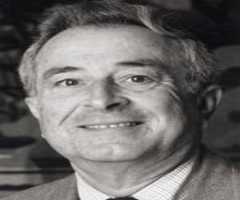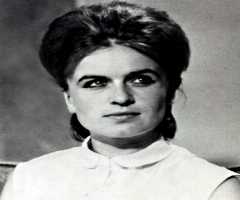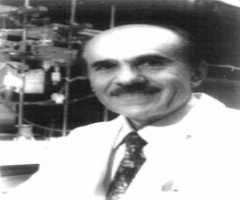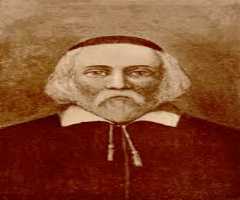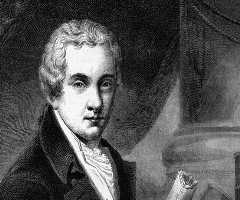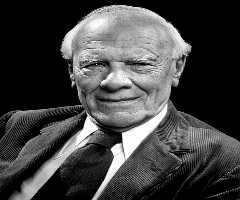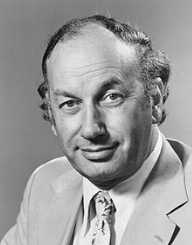
Sir John Robert Vane Biography, Life, Interesting Facts
We are now living in a heightened world where everybody toils to the end of time. In between the hardship of life, we find ourselves taking pain relievers such as aspirin to calm our nerves. Little did we know that someone spent sleepless nights to discover the said acetaminophen. As a promising and fervent pharmacologist, Sir John Roberts Vane received a Nobel Prize in Physiology. The prize acted as recognition when he first discovered how aspirin prevented heart attacks and strokes. He was responsible for the instigation of prostaglandin compound called prostacyclin that plays a major role in keeping human blood vessels at ease. With the help of other gurus in his field, John Vane co-discovered how aspirin treats other diseases such as inflammation. Read further to understand more about his early and subsequent achievements.
Vane’s Personality
An observer by nature, John R. Vane’s symbolic trait was nothing else than courage and simplicity. This is what controlled and governed his life right from the start. His idealistic view of life made him study nature with intense action before acting or employing his end moves. He was quite difficult to please, but once he trusts you, he was good to go. He hated to let other’s down just as much as he loved fine and finest projects. This is in regards to his early experiments and discoveries. Nevertheless, people loved his plain-spoken and direct personality. In short, John was the kind of person who liked to describe things as they are and not as he is told. Read along.
Childhood And Early Life
On 29th, March 1927 John R. Vane was first seen in the world in Tardebigg, Worcestershire, England. His mother, Frances Vane served as a hardworking farmer while his father, Maurice Vane worked as a Jewish Russian Immigrant. Robert had four elder siblings. At his tender age, he started early education at a local school. Afterward, he was enrolled at King Edward VI High School in Birmingham. During the WWII, John was taken to complete his studies at Repton School.
After the completion of his high school studies, John R. Vane attended the University of Birmingham in 1944.It was there that he majored in chemistry. After some time, he realized that chemistry wasn’t his in thing. Therefore he joined the Phycology Faculty at Oxford University in 1946.It was after he received his B.SC that John went to join Sheffield University where he served as a researcher. Although he managed to remain in the post for some months, he gained intense knowledge and understanding in Phycology department. Later he went to the Oxford University where he worked with a department called Nuffield Institute for Medical Research. In the mid of 1951 Vane was honored with a Starter Research Fellowship where he went to complete his Ph.D. in the 1950s.
Career
Early in 1953, John R. Vane’s family went to live in Newhaven, United States. After a short pause of settling down, he joined the Faculty of Pharmacology at Yale University. Here he served as an Assistant Professor of Pharmacology under Dr. Arnold Welch.
John R. Vane remained in the varsity for two years where he later went back to the United Kingdom. It was there that he teamed up with the Institute of Basic Medical Sciences at the University of London. With profound experience in pharmacologist, Vane was advised to teach graduate student research and study. He remained in the position for a decade where he was later appointed as a Senior Lecturer in 1950s.He then got a seat as a Reader and later a Professor of Experimental Pharmacology in the 1960s.
In 1965 John R. Vane started to focus on his major subject where he did several research and study on prostaglandins. In the middle of his study, he tried to find a possible link between prostaglandins and aspirin. His discovery came true in 1971 where he was advised to join the Group Research and Development Foundation in 1973.While there, Vane collaborated with tons of other scientists, and in the process, they established a Prostaglandin Research department.
John’s Major Works And Achievements
From 1977 to 1992 John R. Vane authored several books that brought him into the limelight. Some of the notable ones include the Metabolic Functions of the Lung’, Prostacyclin and Aspirin and other Salicylates. This paved the way for more recognition and achievements including, Fellow of the Royal Society honorably Medal, Fellow of the Institute of Biology honorary, Dale Medal as well as the Nobel Prize in Medicine.
Personal Life And Legacy
In 1948 John R. Vane tied a nuptial knot with Elizabeth Daphne Page with whom he had two daughters called Miranda and Nicola. Sir John Robert Vane breathed his last on 19th, November 2004 while he was receiving treatment at Princess Royal Hospital. Pneumonia and several complications caused his early death. As a trivia, John’s ambition and experimenting skill began when he was 12 years of age.
More Pharmacologists
-
![Alfred G. Gilman]()
Alfred G. Gilman
-
![Marina Oswald Porter]()
Marina Oswald Porter
-
![Daniel Bovet]()
Daniel Bovet
-
![Louis J. Ignarro]()
Louis J. Ignarro
-
![Earl W. Sutherland, Jr.]()
Earl W. Sutherland, Jr.
-
![Salvador Moncada]()
Salvador Moncada
